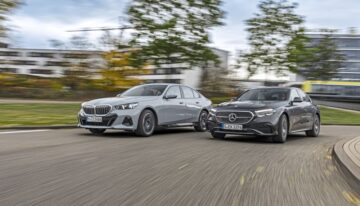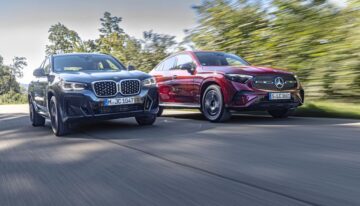As expected, Mercedes gave up the partnership with Renault-Nissan in favor of Geely, the main objective being cooperation for a new generation of 4-cylinder engines to be used in the future by Mercedes, Geely and Volvo.
Although it was expected that Mercedes would give up the partnership with Renault-Nissan, this is still surprising.
Geely is currently Daimler’s largest shareholder, with a $ 9 billion investment in Daimler (9,69% of shares)
Then, Geely formed a 50/50% joint venture with Daimler for the further development of the smart brand, whose production will take place exclusively in China.
On the other hand, the partnership with Renault-Nissan has had more failures than successes.
– Mercedes X-Class based on Nissan Navara basis was taken out of production after only two years due to poor sales.
– The Mercedes Citan built on the Renault Kangoo basis was a failure especially on the Euro NCAP test.
– The development of the smart fortwo / forfour together with Renault Twingo failed to lead to the profitability of the smart brand that ended up being moved to China.
– The small-displacement engines taken over from Renault and adapted by Mercedes did not rise to Mercedes standards, at least in case of 1.5 dCi diesel.
Instead, the 1.33-liter turbo gasoline engine was quite well received in the compact class, being practically the only notable achievement of the partnership between the two carmakers from Mercedes point of view.
But now this partnership is history. Let’s see what will bring the future cooperation with Geely.
Compared to the partnership with Renault-Nissan in which Mercedes only adapted the Renault engines to its requirements, in the case of the partnership with Geely, Mercedes will deal directly and exclusively with the development of the new generation of in-line 4-cylinder engines. This means that Mercedes will be able to offer small displacements engines to its standards without any compromise.
Mercedes currently has nearly 20 versions of internal combustion engines from the compact class to the Sprinter. Markus Schafer, the new head of Mercedes-Benz cars from April 1, 2020, declared in an interview in auto motor und sport magazine: “We need to reduce this variety and combine our engineering experience with the possibilities of a partner who can create added value in China while bringing in additional volumes from brands Geely and Volvo.
To this end, Geely has built a state-of-the-art engine plant in China, and Mercedes promises a series of innovations so that this new generation of engines will operate most of the time with a lambda stoichiometric ratio of 1.
Mercedes gave up the partnership with Renault-Nissan and a new era will start with the new partner Geely.













